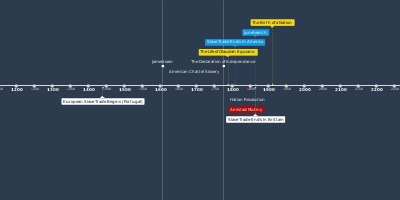18 Mai 1896 Jahr - Plessy v. Ferguson
Beschreibung:
A landmark decision of the U.S. Supreme Court that upheld the constitutionality of racial segregation laws for public facilities as long as the segregated facilities were equal in quality[2] – a doctrine that came to be known as "separate but equal".[3][4] The decision legitimized the many state laws re-establishing racial segregation that had been passed in the American South after the end of the Reconstruction Era (1865–1877).The decision involved a case that originated in 1892 when Homer Plessy, an "octoroon" (person of seven-eighths white and one-eighth black ancestry) resident of New Orleans, deliberately violated Louisiana's Separate Car Act of 1890, which required "equal, but separate" train car accommodations for white and non-white passengers. Upon being charged, Plessy's lawyers defended him by arguing that the law was unconstitutional. He lost at trial, and his conviction was affirmed on his appeal to the Louisiana Supreme Court. Plessy then appealed to the U.S. Supreme Court, which agreed to hear his case.
In May 1896, the Supreme Court issued a 7–1 decision against Plessy ruling that the Louisiana law did not violate the Fourteenth Amendment to the U.S. Constitution, stating that although the Fourteenth Amendment established the legal equality of white and black Americans, it did not and could not require the elimination of all social or other "distinctions based upon color". The Court rejected Plessy's lawyers' arguments that the Louisiana law inherently implied that black people were inferior, and gave great deference to American state legislatures' inherent power to make laws regulating health, safety, and morals—the "police power"—and to determine the reasonableness of the laws they passed. Justice John Marshall Harlan was the lone dissenter from the Court's decision, writing that the U.S. Constitution "is color-blind, and neither knows nor tolerates classes among citizens", and so the law's distinguishing of passengers' races should have been found unconstitutional.
Overturned by
Brown v. Board of Education (1954) (de facto)
Zugefügt zum Band der Zeit:
Datum:
18 Mai 1896 Jahr
Jetzt
~ 129 years ago
